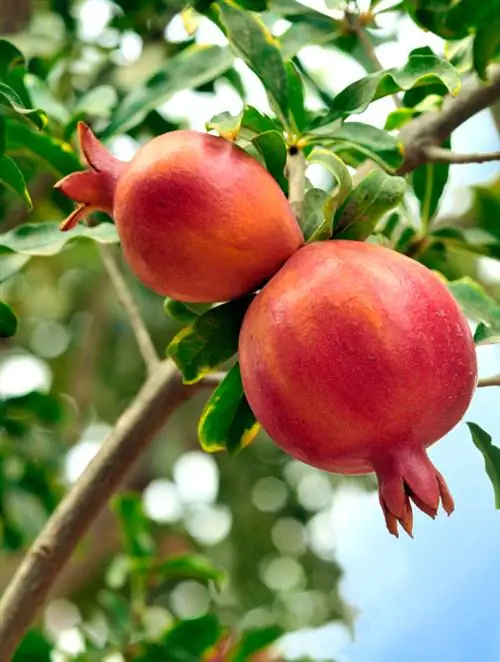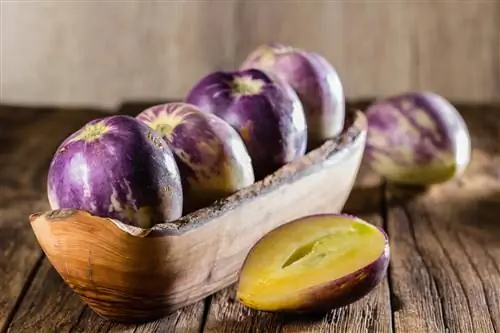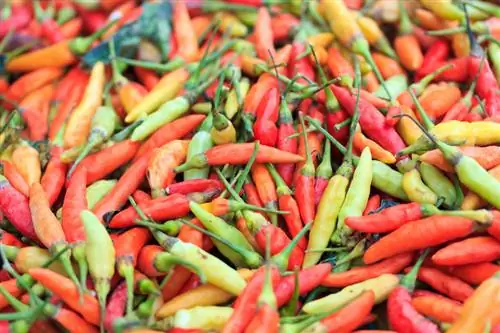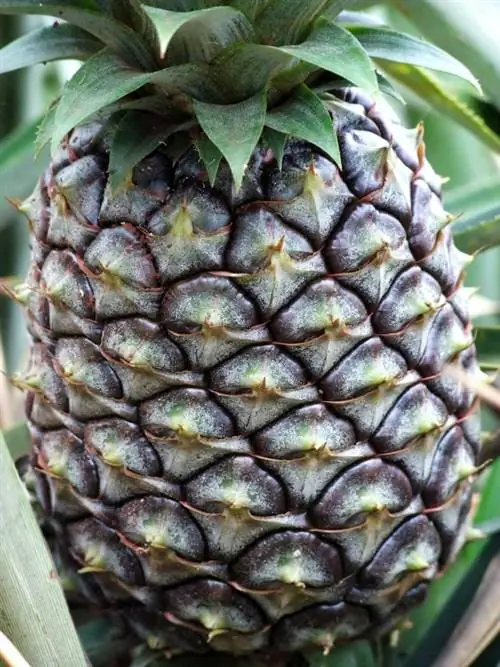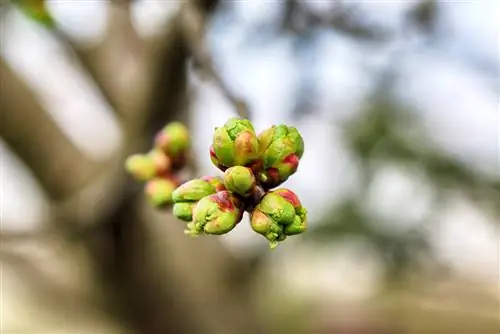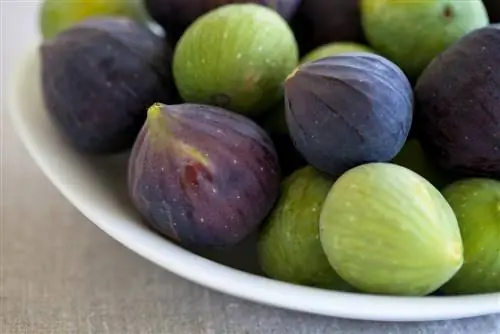- Author admin [email protected].
- Public 2023-12-16 16:46.
- Last modified 2025-01-23 11:20.
Pomegranates, along with pineapples, strawberries, table grapes, watermelons and citrus fruits, are among the so-called non-climacteric fruits that no longer ripen after being picked. Although pomegranates are sold ripe, they can be stored for a long time without loss of quality.
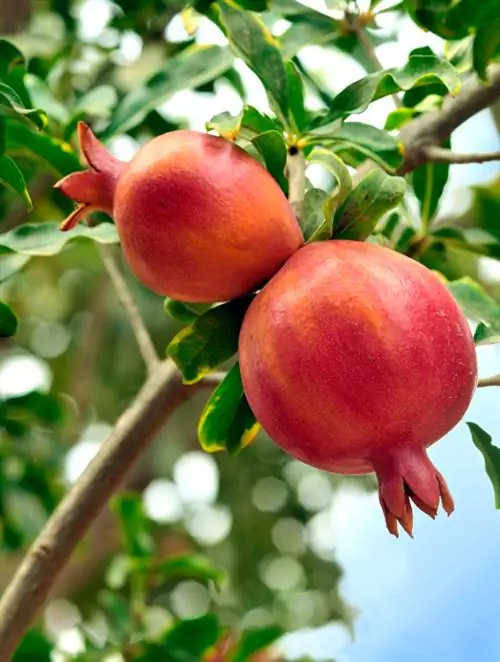
Can a pomegranate still ripen after being picked?
Pomegranates are non-climacteric fruits that do not ripen after they are picked. They must be harvested when fully ripe, but thanks to their protective shell they can be stored for a long time without losing quality.
After-ripening and non-ripening fruits
The non-ripening (or non-climacteric) fruits differ from the post-ripening (climacteric) fruits in their breathing behavior after harvest:
- The non-climacteric fruits then only release a small amount of carbon dioxide,
- the carbon dioxide release of climacteric fruits increases.
The fruits that no longer ripen after picking must therefore be harvested when fully ripe.
Can be stored despite being fully ripe
The climacteric fruits only require a certain minimum level of ripeness in order to be picked and then to reach full ripeness during storage. The non-ripening fruits, on the other hand, are intended for immediate consumption and cannot be stored for a long time because they are fully ripe. The pomegranate is an exception thanks to its protective peel.
Protection through shell rich in tannins
The firm, leather-like outer skin optimally protects the edible seeds inside the pomegranate from all external influences. The robust peel ensures that the pomegranates can be easily transported from the growing countries to Germany and stored for a few months without losing their freshness or taste.
During storage, the peel of the pomegranate dries up and becomes increasingly firm, but the flesh underneath remains fresh and juicy. Inside the pomegranate, the seeds, which are plump with light or dark red juice, are additionally protected from drying out by the light, soft partitions.
Tips & Tricks
You often read that in the countries of origin the fruits that are intended for personal use are left on the tree until the shell bursts open. Such overripe pomegranates are said to taste best.

